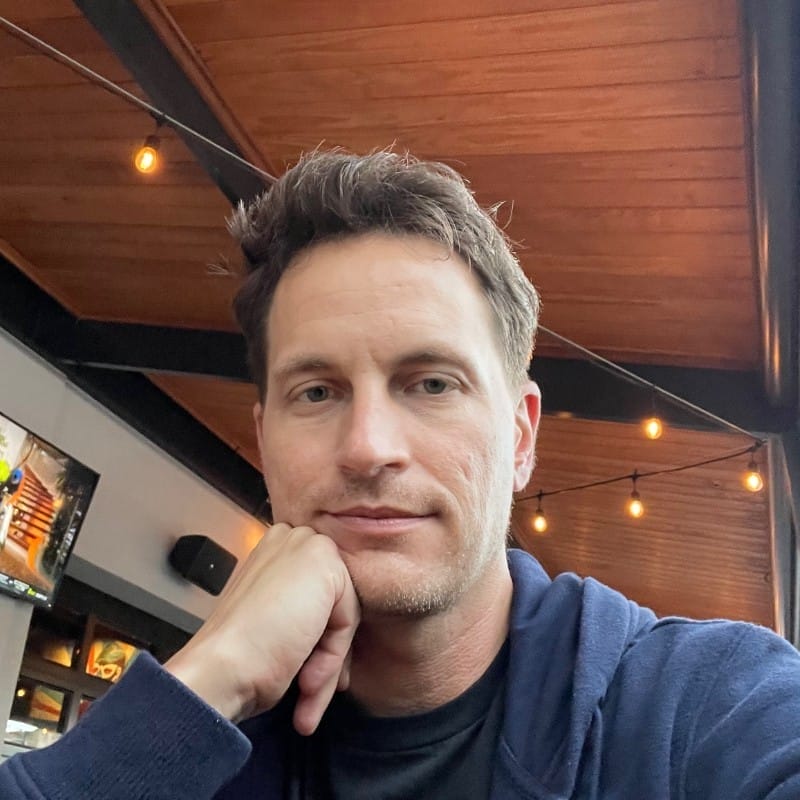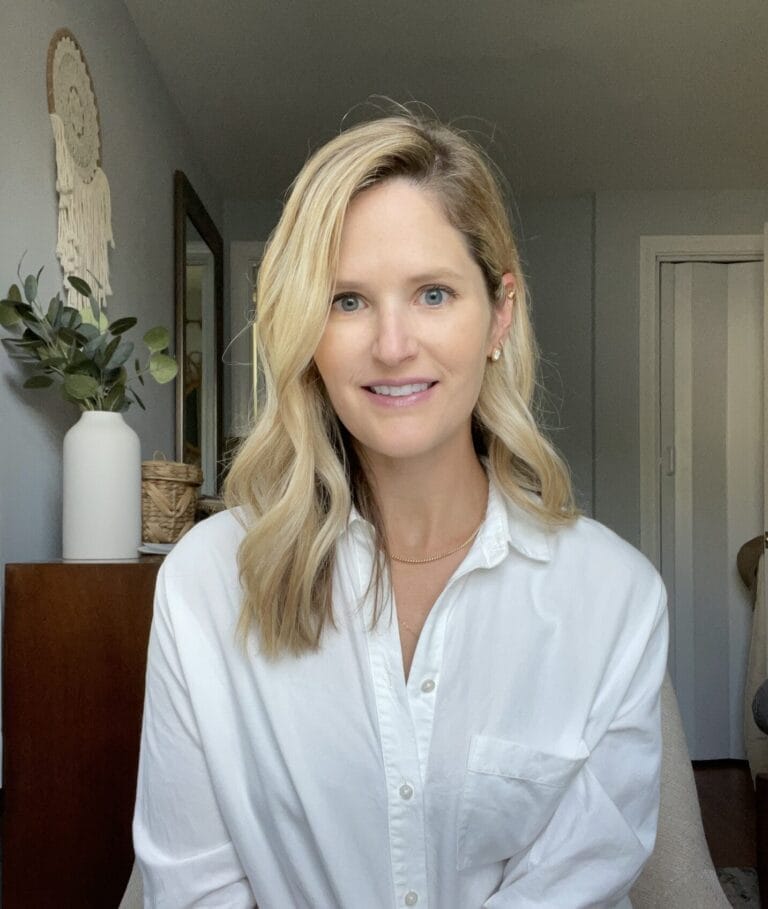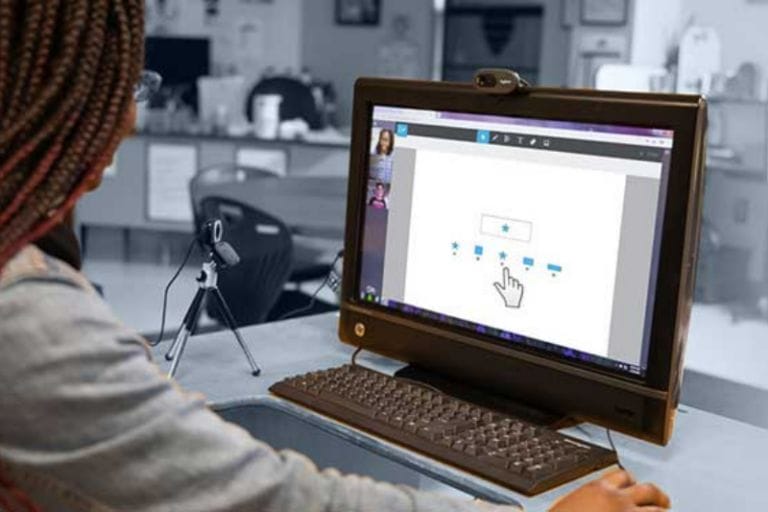
For our PresenceLearning Voices series and to celebrate June Pride Month, we spoke with Brandon Rader, an instructional technologist with PresenceLearning. Brandon shared with us the meaning of Pride Month in his life and work and why he joined the PresenceLearning team. We started with Brandon telling us a little about his background and current role with PresenceLearning.
Can you tell us a little about your work prior to joining PresenceLearning?
I was a 12th grade International Baccalaureate teacher. I taught History of the Americas, so I taught many things about twentieth century Central and South American history. I’ve taken students on trips to Cambodia, Thailand, Vietnam, China, Costa Rica. I’m taking students to Ecuador for a couple of days this month—it’s my last student trip that I had already on the calendar.
I found out about the instructional design job through job boards but immediately, when I saw the mission of PresenceLearning, I was very, very excited and very, very eager for that particular job, because I knew that I wanted to make sure that I moved into another field that was rewarding to me in a similar way that education had been. I felt like this would be the dream position for me to get involved with and it hasn’t disappointed so I’m still really enthusiastic about the company and work.
What does Pride month mean to you?
I think this year is different than previous years for me, and part of that is because of where I live, and the times we live in. I live in Florida. I was a teacher for 14 years in public schools, and then I joined PresenceLearning in October 2021. I left public education right before Ron DeSantis and the Florida state legislature passed the “Don’t Say Gay bill.” I’m glad I left when I did because while the intent of the bill is allegedly to protect parents rights, I find it a form of intimidation. Early on in my teaching career, I really struggled with the way people perceived me about my sexuality, and I struggled with feeling comfortable in my own skin. I was bullied terribly all through school and it’s kind of ironic that I wanted to become an educator despite all that.
When I first started teaching, sometimes even students would bully me. Being quite young when I entered the profession, too, made my life a little bit more difficult. I went back and forth about whether I wanted to stay in the profession. When I started in education in the early 2000s—I was in rural Tennessee—it was iffy about whether or not you could be out and be supported by the administration. I came to the realization pretty early that first year that if I couldn’t be out, then this wasn’t the profession for me, no matter how much I loved education, and even though I felt in my bones education is where I belonged. I was very fortunate. I had amazing principals at every school that I worked at who were so, so supportive and amazing staff as well—super, super supportive—and I always remained out.
But this year, with the passage of this law, I feel like the gauntlet has been thrown, and I’m very, very excited to be working at a company that is providing mental health services for students that I know are really needed right now. Mental health services for students were needed before this and they’re going to be needed even more after this. As a public school teacher who saw the effects of COVID, social isolation, bullying, trauma from being online, I feel like Pride month means even more to me now. The visibility, camaraderie, and the exposure that we get at this time, especially in my state, is important.
Aside from all that, I am a parent. My daughter is adopted. She goes to public school and she has those two parents that she’s not allowed to talk about anymore, parents that the teacher is supposed to just ignore because she’s in that age range that this law effects so it’s a very personal moment for me, I would say.
In any year I think Pride is important because of the exposure it gives us for political issues that are happening for us at this time, and beyond that, of course, it’s also about celebration, and a lot of it is about education—educating people—gay, straight, all walks of life, about our lives, our experiences. And I think that’s what’s great about Pride today.
How has Pride changed in your experience?
I think Pride is also really important to me because I think people who are represented this month have experienced trauma. I know a lot of people have experienced trauma in all walks of life, of course. I’m not trying to minimize anyone’s trauma. But I think what’s unique about our collective trauma is that we experience it in our own homes, in our own families, and many of us, if we’re lucky, work with great therapists like those provided at PresenceLearning who help us to understand that trauma, unpack that trauma, and think about how it’s shaped us and continues to shape us as individuals. And they help us heal from that trauma. I think a big part of Pride is people recognizing that we’ve had these shared experiences, and then also talking it through and exposing that to people.
And I think obviously, one of the reasons we celebrate Pride is to celebrate who we are but also to have that exposure and that acknowledgement. I think that’s so powerful, especially again being in Florida, for the young people that I worked with for so long to know that they’re represented, that they can be all kinds of people when they grow up. When I was young I thought my future was extremely bleak, dark, and lonely. I couldn’t foresee a happy future. I certainly couldn’t have seen myself being married and having a child, and having a successful career, and then being out about it to everyone—family, friends, coworkers. That was impossible for me to imagine but that’s because I lived in a world where there was no Pride, where there was no discussion of these things, or these role models to be seen. I’m really happy that in spite of living in Florida, I do live in a city that is very affirming, that celebrates its Pride—St. Petersburg has one of the largest Prides in the entire United States, ironically. I think that’s really, really important for Pride month, and I think it gets lost a lot in the media, that aspect of it. I think it becomes a lot about advertising.
The thing that I’m noticing more and more is that more people are participating in Pride and Pride has become even more inclusive. When I was younger, we didn’t talk about the intersectionality of race and gender and class. Those are things we talked about at university, but they didn’t really make it to the Pride parades or the events. And now I see so much more of that. I see so much more about people talking about more than just sexuality, but also race and ethnicity and class. I also see that playing out in the people participating. In the past, the people that came were in the LGBTQ+ community—it used to be more like a members-only kind of event. I see a lot more diversity in the people who come to Pride events today.
People like to laugh about the acronyms, and the letters—call it alphabet soup, or whatever they really want to call it. We keep adding more and more letters, but I think every time we add another letter, we become a bigger, more powerful, more inclusive group.
Today, I see so many other people that are now involved in it. Also what’s really exciting is I see a lot more allies—people are coming that maybe don’t directly identify with the LGBTQ+ community necessarily, but they’re standing up and they’re saying “You’re here. We respect you. We want you happy, healthy, and safe.” And coming back to PresenceLearning, I think that is something that has been really, really great because as a public school teacher, I knew that there was support from the staff, but there were no formal ties to that. There were no celebrations of it publicly, formally. There could be an LGBTQ+ group for students on campus, but there weren’t for staff. At PresenceLearning, we have our community and it has many, many allies.




